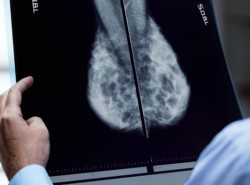
Developing of point-of-care biosensors for detection of breast cancer relapse
Published: 10/9/19 1:48 AM
Kirill Alexandrov
More than 90% of breast cancer-related death is associated with metastatic cancer relapse. Relapse can occur from few months to several years following the treatment of the primary tumour, and is often characterised by tumour growth at multiple locations in the body. Early detection of such growth dramatically increases the effectiveness of further cancer treatment. Since at the early stage of metastasis new tumours are small, their detection is very difficult. Tumour growth is accompanied by release of tumour DNA into the surrounding tissues and blood, and so the ability to detect tumour DNA in blood provides a very attractive avenue for breast cancer diagnostics. However the current methods for detection of tumour DNA require complex equipment and are not suitable for continuous monitoring. Therefore we propose to develop a simple diagnostic test that identifies tumour DNA in the patient’s blood. Conceptually this test is similar to the one used for measuring the blood sugar in diabetic patients. The test is based on semiconductor-like proteins developed in CI Alexandrov’s laboratory. These proteins could be engineered to selectively recognize the tumour DNA and pass this information to a detector connected to a smart phone. Such test will improve the treatment outcome and quality of life of breast cancer patients.
